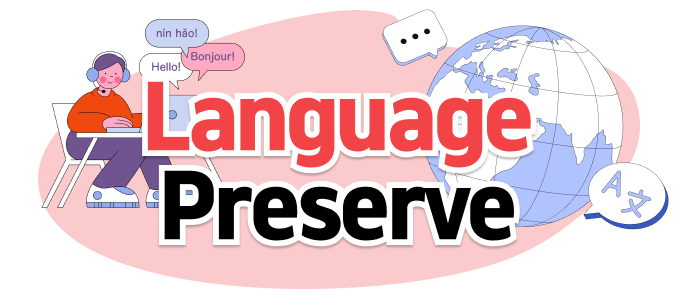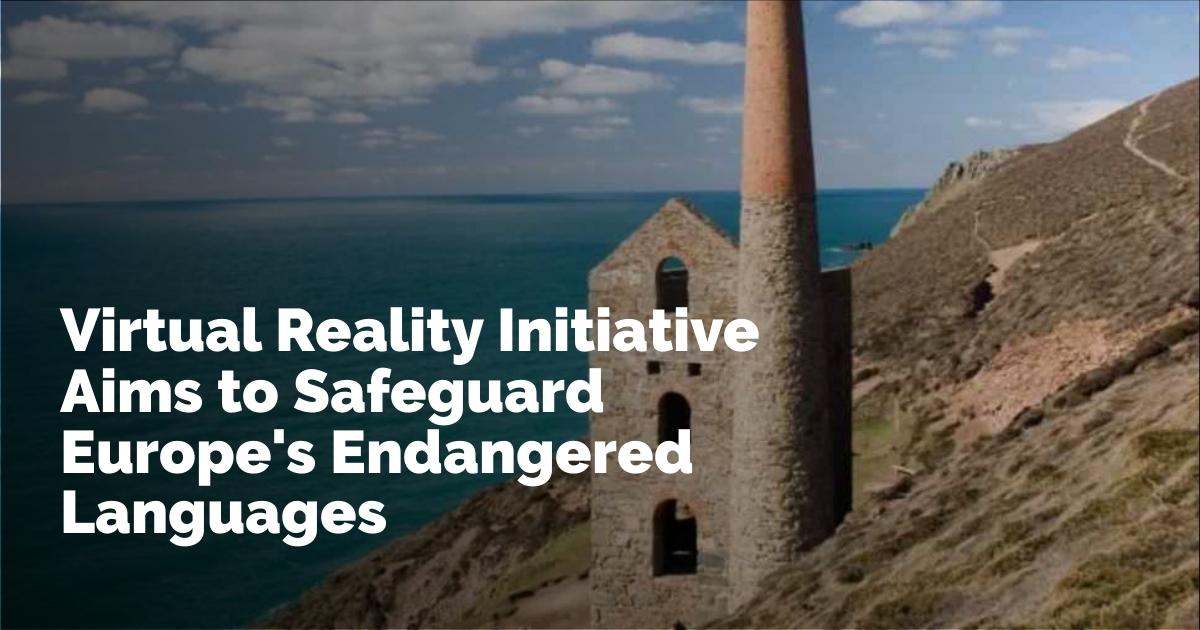VR Project Aims to Preserve Endangered European Languages
Europe is replete with diverse languages and rich cultural heritages that are wondrous yet delicate, with some on the brink of extinction. To address this, a remarkable project in the UK is set in motion to preserve two of these endangered linguistic treasures through the innovative use of advanced technology.
Revive: A Transformative Initiative
The project, aptly named "Revive," is spearheaded by Anglia Ruskin University in the UK. With a funding of 2.96 million Euros, this initiative is gaining momentum, bringing together academic and industry partners from multiple European countries, including the UK, Italy, Germany, Portugal, Romania, Serbia, and Estonia. Launched under the auspices of the EU’s Horizon Europe programme, Revive is set to commence in March 2025.
Languages Under Threat
Griko and Kernewek are the two languages that Revive will focus on conserving. Griko is an ancient language spoken in isolated areas of Italy, whereas Kernewek, native to Cornwall in the UK, has a storied past of extinction and subsequent revival. Kernewek, once deemed extinct by the late 18th century, has seen a resurgence in the 20th century, resulting in its classification as endangered by UNESCO. An estimated 500 people are fluent in Cornish today, with several thousand possessing a basic grasp of the language.
Harnessing Technology for Preservation
Revive plans to use groundbreaking technologies like virtual reality (VR) and extended reality (XR) to breathe new life into these languages. Through participatory storytelling and immersive experiences, the project aims to create a dynamic historical record of Griko and Kernewek.
XR technologies combined with data visualization and archival research will enable the formation of a cohesive and lively narrative that brings the languages to life for future generations. Testimonials from native speakers will be captured, alongside photographs, films, and audios, creating a digital anthology of these languages.
The Danger of Language Extinction
The urgency behind Revive is underscored by staggering linguistic forecasts. According to estimates, nearly half of the languages spoken today might disappear or become critically endangered by the end of the 21st century. The United Nations highlights the gravity of the situation, indicating that a language dies out every two weeks.
Languages are integral to cultural identity and diversity; their loss contributes to cultural homogenization. Revive's innovative approach aims to counter this by promoting these languages through compelling digital content.
Community-Centric Approach
Integral to Revive's strategy is public engagement, fostering an active role for local communities in Cornwall and beyond. By involving communities in creating digital narratives and sharing these widely—both online and through live exhibitions—the project intends to raise awareness and appreciation for linguistic heritage among younger generations.
Ensuring Accessibility and Continuity
One of the project’s pillars is the creation of a digital platform and repository. This feature will ensure that the collected material remains accessible online, providing a continuous resource for education and cultural enrichment.
Dr. Fabrizio Galeazzi, an associate professor in heritage and creative technologies at Anglia Ruskin University, emphasized the aspirational impact of cultural and linguistic diversity preservation. Languages, as expressions of collective history and identity, are indispensable to the human experience. The ambitious Revive project represents a vital step toward safeguarding this aspect of our shared cultural heritage.
By foregrounding innovative technology and fostering public participation, Revive seeks to turn the tide of language extinction, encapsulating the wealth of linguistic diversity within the European landscape and ensuring it thrives for generations to come.
출처 : Original Source

